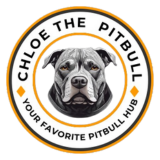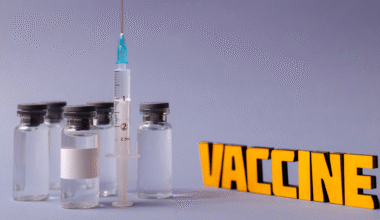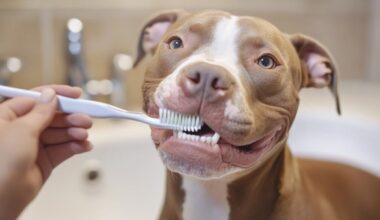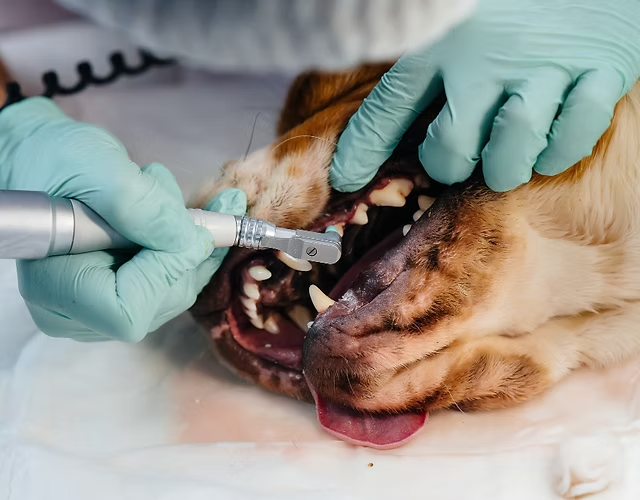
Have you ever leaned in to cuddle your Pit Bull only to be met with less-than-pleasant breath? You’re not alone. In fact, studies show that most dogs develop some form of dental disease by the age of three, and Pit Bulls, with their strong jaws and love for chewing, are no exception. Dental disease in Pit Bulls isn’t just about bad breath; it can lead to painful infections, tooth loss, and even impact vital organs like the heart and kidneys.
The good news? Preventing dental disease in Pit Bulls doesn’t have to be overwhelming. With a few consistent habits and the right care, you can protect your dog’s smile, keep their gums healthy, and avoid costly veterinary treatments down the road. In this post, we’ll walk through five essential, vet-approved tips to improve your Pit Bull’s oral health and ensure they stay as happy and energetic as ever.
5 Essential Tips to Prevent Dental Disease in PitBulls.
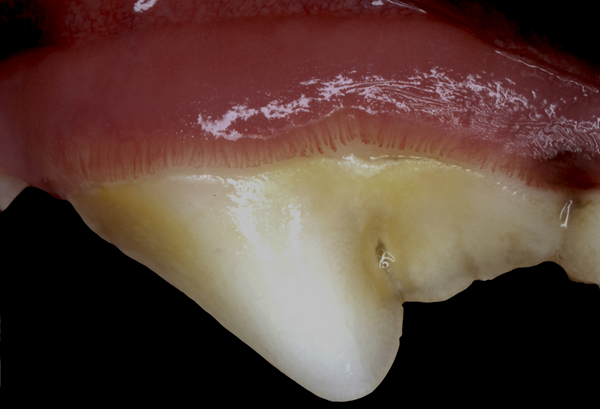
Have you ever leaned in to cuddle your Pit Bull only to be met with less-than-pleasant breath? You’re not alone. In fact, studies show that most dogs develop some form of dental disease by the age of three, and Pit Bulls, with their strong jaws and love for chewing, are no exception. Dental disease in Pit Bulls isn’t just about bad breath; it can lead to painful infections, tooth loss, and even impact vital organs like the heart and kidneys.
The good news? Preventing dental disease in Pit Bulls doesn’t have to be overwhelming. With a few consistent habits and the right care, you can protect your dog’s smile, keep their gums healthy, and avoid costly veterinary treatments down the road. In this post, we’ll walk through five essential, vet-approved tips to improve your Pit Bull’s oral health and ensure they stay as happy and energetic as ever.
Tip 1: Brush Your Pit Bull’s Teeth Regularly
Dental brushing remains the gold standard for preventing dental disease in Pit Bulls. According to the American Veterinary Dental College (AVDC), daily brushing is the single most effective way to remove plaque before it hardens into tartar. For Pit Bulls, whose strong jaws make them prone to chewing hard objects, brushing helps prevent cracks from going unnoticed and infections from spreading.
Why Brushing Matters
Plaque forms naturally after eating. If not removed, it mineralizes into tartar within 24–48 hours. Once tartar sets, brushing alone can’t remove it, and a professional cleaning becomes necessary. This buildup leads to gingivitis, which, if untreated, progresses into periodontal disease—one of the most common causes of tooth loss in dogs.
Tools You’ll Need
- Canine toothpaste: Choose flavors like poultry or beef that appeal to dogs.
- Soft-bristled toothbrush: Look for angled brushes that reach back molars.
- Finger brushes: Great for puppies or nervous Pit Bulls who resist brushing.
- Dental wipes: Useful when brushing isn’t possible, but not as effective long-term.
Step-by-Step Training Approach
- Acclimate slowly: Start by gently lifting your Pit Bull’s lips without brushing. Reward with a treat.
- Introduce toothpaste: Let them lick toothpaste off your finger.
- Begin short sessions: Brush just a few front teeth in the first week.
- Increase coverage: Extend brushing to molars as your dog gets comfortable.
- Set a schedule: Aim for daily brushing, but a minimum of 2–3 times weekly is critical.
Mistakes to Avoid
- Using human toothpaste, which contains fluoride/xylitol, can poison dogs.
- Rushing the process, forcing brushing, may create lifelong resistance.
- Brushing too aggressively can damage delicate gum tissue.
Pro Tip for Pit Bull Parents: Create a “toothbrushing routine” after evening walks—dogs thrive on routine and will learn to expect and even enjoy brushing time.
Tip 2: Provide Dental Chews and Chew Toys
Chewing is not just instinctive for Pit Bulls; it’s also therapeutic and beneficial for their oral health. Studies show that daily chewing can reduce plaque by up to 70% when combined with brushing.
Benefits of Chewing for Oral Health
Mechanical cleaning: The chewing action scrapes plaque from tooth surfaces.
Increased saliva production: Saliva contains natural enzymes that reduce bacterial load.
Behavioral outlet: Chewing relieves stress and prevents destructive chewing habits.
Choosing the Right Dental Chews
Look for VOHC (Veterinary Oral Health Council)-approved chews, which are tested to reduce plaque and tartar. These chews are formulated to be safe while promoting dental hygiene. Examples include enzymatic chews, rawhide alternatives, and dental sticks.
Safe Toys for Pit Bulls
Pit Bulls are power chewers, so toy safety is paramount:
- Rubber chew toys: Durable options, such as KONGs, can be stuffed with healthy fillings.
- Nylon bones: Designed for tough chewers, but should be replaced when worn down.
- Rope toys: Can help floss teeth when used under supervision.
Unsafe Options to Avoid
- Antlers and hooves: Too hard, risk of causing tooth fractures.
- Cooked bones: Splinter easily and may lead to intestinal blockages.
- Plastic toys: Break into shards that can harm gums or be ingested.
Pro Tip for Pit Bull Lovers: Rotate toys weekly to keep your dog engaged and prevent them from over-wearing a single chew, which could damage their teeth.
Tip 3: Feed a Dental-Friendly Diet
What your Pit Bull eats has a direct effect on dental disease prevention. Poor diet contributes not only to tartar buildup but also to gum inflammation and systemic health issues.
Kibble vs. Wet Food
- Dry kibble: Crunchy textures help scrape teeth, reducing plaque
- Wet food: Sticks to teeth, creating a breeding ground for bacteria.
Dental-Specific Diets
Some diets are specifically designed to promote oral health. These diets often use:
Special kibble shapes and textures to clean teeth while chewing.
Added enzymes to fight oral bacteria.
High protein/low carbohydrate formulations that discourage plaque formation.
Foods to Avoid
Sticky treats like caramel or sweetened peanut butter.
- Human foods are high in carbs or sugar.
- Table scraps, especially processed foods.
Pro Tip: Combine a high-quality diet with daily brushing and chews for a three-pronged approach to oral health.
Tip 4: Schedule Regular Veterinary Dental Checkups
No matter how diligent you are at home, professional veterinary care is essential for preventing dental disease in Pit Bulls
Importance of Annual Exams
Your vet can spot problems invisible to the naked eye, such as:
- Infections below the gumline.
- Broken or fractured teeth.
- Oral tumors or abscesses.
What Happens During a Cleaning
- Anesthesia keeps your Pit Bull comfortable and safe.
- Scaling removes hardened tartar above and below the gumline.
- Polishing smooths tooth surfaces to prevent future buildup.
Full-mouth examination identifies hidden concerns.
Signs Your Pit Bull Needs Immediate Dental Care
- Reluctance to chew or sudden food refusal.
- Persistent drooling or pawing at the face.
- Bleeding gums.
- Swollen face or jaw.
Pro Tip: Think of professional dental cleanings like oil changes for your car—routine care saves you from costly, painful emergencies later. Click here to explore more on how to keep your pitbull’s teeth healthy and strong at an early age.
Tip 5: Recognize and Respond to Early Signs of Dental Disease
The sooner you recognize dental disease in Pit Bulls, the easier it is to treat.
Early Symptoms to Watch
- Persistent bad breath.
- Red or inflamed gums.
- Excessive drooling.
- Difficulty chewing or dropping food.
- Loose or missing teeth.
At-Home Oral Checks
- Gently lift your Pit Bull’s lips once a week.
- Look for tartar, discoloration, or gum swelling.
- Note any changes in eating behavior or mood.
Why Early Action Matters
Unchecked dental disease can allow bacteria to enter the bloodstream, damaging organs like the heart, liver, and kidneys. Prompt action saves both money and suffering.
Pro Tip for Owners: Keep a journal of your dog’s dental care – note when you brush, what signs you see, and when you schedule vet visits.
Common Mistakes Pit Bull Owners Make With Dental Care
Many owners unintentionally worsen dental problems. Avoid these pitfalls:
- Skipping brushing altogether.
- Assuming chews are enough, they’re supplemental, not primary care.
- Delaying vet visits until the dog shows severe symptoms.
- Choosing unsafe chews that fracture teeth.
FAQs About Pit Bull Dental Health
Q: How often should I brush my Pit Bull’s teeth?
A: Daily brushing is ideal, but 2–3 times per week is the minimum to control plaque.
Q: Are dental chews enough to prevent disease?
A: No. They help, but should always be paired with brushing and professional care.
Q: When should I start dental care for my Pit Bull puppy?
A: Start as early as 8–12 weeks old. Early exposure makes lifelong brushing easier.
Q: Can poor dental health affect my Pit Bull’s overall health?
A: Yes. Bacteria from the mouth can enter the bloodstream, affecting the heart, liver, and kidneys.
Quick At-Home Dental Care Checklist
- Brush your Pit Bull’s teeth 2–3 times per week (daily is best).
- Provide daily VOHC-approved dental chews or safe chew toys.
- Feed a dental-friendly diet with crunchy kibble or specialized formulas.
- Watch for early signs of dental disease (bad breath, swollen gums, drooling).
- Schedule yearly veterinary dental checkups.
Conclusion: Protecting Your Pit Bull’s Smile for Life
Dental disease in Pit Bulls is one of the most common and most preventable health issues owners face. Left untreated, it can lead to chronic pain, tooth loss, and even impact vital organs. The good news is that with the right care, you can safeguard your dog’s oral health and keep their smile strong for years to come.
To recap:
- Brushing regularly is the cornerstone of oral care, helping remove plaque before it hardens into tartar.
- Dental chews and safe chew toys give your Pit Bull a natural way to clean teeth while satisfying their chewing instincts.
- A dental-friendly diet supports overall health while minimizing plaque buildup.
- Annual veterinary checkups are essential for catching hidden problems and providing professional cleanings.
- Recognizing early signs like bad breath, gum swelling, or loose teeth ensures prompt treatment and prevents complications.
By combining these strategies and avoiding common mistakes like skipping brushing or relying only on chews, you’ll give your Pit Bull the gift of a healthier, happier life.
Remember, dental care is more than fresh breath or a bright smile. It’s a key part of your Pit Bull’s overall well-being. Share these tips with fellow Pit Bull parents and dog lovers, and let’s work together to reduce the risk of dental disease in our beloved companions. After all, a healthy mouth means more cuddles, more playtime, and more years of joy with your best friend.
Y
